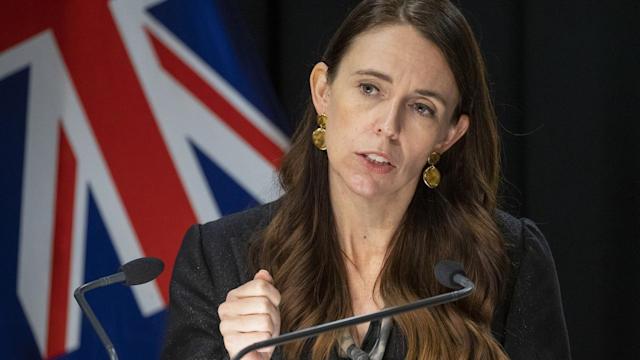Jacinda Ardern, the New Zealand prime minister, has spoken of Beijing’s “growing assertiveness” in the Pacific region as she challenged the motive for a security pact between Solomon Islands and Beijing.
Australia, New Zealand and the U.S are concerned the Solomons pact could allow China to establish a military base within 2,000km of Australia’s east coast. The text permits China to “make ship visits to, carry out logistical replenishment in, and have stopover and transition in Solomon Islands”.
Speaking to the BBC, Ardern said: “One of the reasons we’ve expressed this disappointment [is] … Australia and New Zealand both have heeded the call of the Solomons for support during recent disruption.
“And we’ve again highlighted that should any extended need exist, we are there to help and support. What gap remains that requires such an agreement with China?”
China had exhibited a “growing assertiveness” and “growing interest” in the Pacific region, Ardern said, but New Zealand and Beijing had a “mature relationship” and must continue to work together on areas of mutual interest.
“Our world is changing around us and our region is a manifestation of that,” Ardern said.
The signing of the security deal is reverberating in the Australian federal election campaign, with the Labor opposition accusing the Coalition prime minister, Scott Morrison, of presiding over a “Pacific stuff-up”.
The New Zealand foreign minister Nanaia Mahuta told RNZ on Thursday there had been a lack of visibility and transparency from Solomon Islands and China over their agreement, and rejected any notion that its signing was a major foreign policy failure on behalf of Australia or New Zealand.
“We’ve got to remember that even the local community in the Solomon Islands don’t have visibility on this issue and the parliament is split on the terms and conditions of the agreement, which they too have not seen,” Mahuta said.
Mahuta said New Zealand had upheld its part of the Biketawa declaration – which outlines how Pacific Islands Forum countries will respond to regional crises – including responding to unrest in Honiara in 2021. The forum should make it a critical agenda item so all Pacific nations could discuss regional security and sovereignty, Mahuta said.
“It’s going to be a matter of trying to bring the Solomons into a conversation, rather than the Solomons feeling like they’re defending their sovereignty and they’re being outcast by the rest of the Pacific.”
China is New Zealand’s largest trading partner by a substantial margin and accounts for about a third of total exports, which has led to speculation Wellington is unable to take tough stances on Beijing.
Ardern rejected the idea that it was time to join Aukus – the trilateral security partnership between Australia, the UK and the US aimed at confronting China.
Speaking to the BBC, she said: “Our call on Aukus is simply that yes, it is to our benefit when we have greater engagement,” she said. “We’ve asked the U.S to take an interest in the economic architecture of our region, it can’t just be about defence and security arrangements.
“It should be about the wellbeing of the region as a whole. And you’re starting to see a response from the U.S on that front.”
The Australian Labor party’s opposition foreign affairs spokesperson, Penny Wong, told the ABC: “Solomon Islands is a sovereign nation and of course they make their own decisions, but that does not absolve Morrison and this government of their responsibility for what has happened on their watch.”
Labor cited figures showing Australia’s bilateral official development assistance to Solomon Islands averaged $167.5m (US$123 million) a year under the Coalition government. That figure was about 28 percent lower than the $231.6m (US$170 million) average under the former Labor government.
The Australian government has previously said it has offered additional assistance to the Pacific in separate programs, including Covid-related help.
Australia’s Coalition minister for the Pacific, Zed Seselja, said Wong had “fundamentally misrepresented the situation and, in fact, completely misdiagnosed the response”.
Seselja, who travelled to Honiara last week to “respectfully” urge Sogavare not to proceed with the deal, told Sky News the Australian government was “spending a record amount when it comes to aid in the region, when it comes to security arrangements in the region, when it comes to our Covid response”.
“We have stepped up in every way,” he said. “Solomon Islands is the third largest aid spend we do anywhere in the world, the second largest in our region in the Pacific after PNG.”
Seselja said Sogavare’s comments that Solomon Islands would not allow China to set up a military base in the country were “important assurances” and “we have to take them at face value”.
The Australian prime minister, Scott Morrison, hit back at suggestions the government was blindsided by the deal. He said he had “known for some time the risk of a deal such as this coming about” and that was why he chose Solomon Islands for his first international trip after the 2019 election.
“And I spoke to the prime minister there on that occasion about the threats that China presented to the region, and we discussed those issues back on that occasion, and there has been an ongoing dialogue over that entire time,” Morrison said.
“The threat of this has been around for a long time and I can’t go into all the details as to how Australia is able to know the specific information, as they are security matters, but what I do know is we have always been very conscious of that threat of China being able to influence a nation in our region to ends such as that.”
Morrison added that China was “an autocratic nation that is not playing by the normal rules on how they seek to influence other nations in our region”. He said he had discussed the matter with Ardern “many times” and they would be talking about it as part of the Pacific Islands Forum.
SOURCE: THE GUARDIAN/PACNEWS














